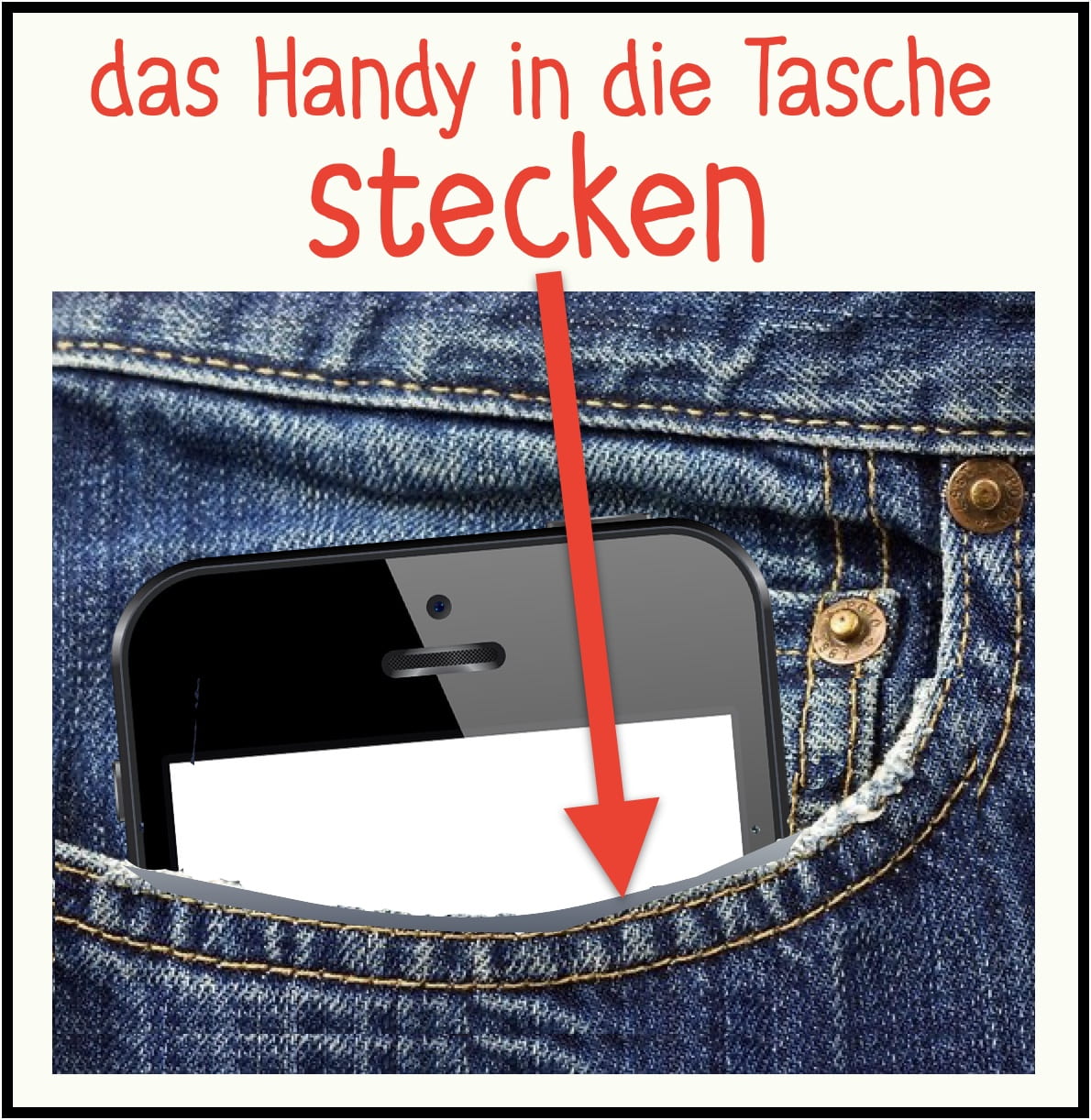Question 1: Verbs for Moving Things from Place to Place
 Most verbs in German that correspond to the English verb "put" trigger the accusative case in the articles, possessive pronouns and adjective endings that follow. Here are some examples:
Most verbs in German that correspond to the English verb "put" trigger the accusative case in the articles, possessive pronouns and adjective endings that follow. Here are some examples:
- Du kannst dein Gepäck in dieses Zimmer stellen. → You can put your luggage in this room.
- Ihr könnt eure Fahrräder in unsere Garage stellen. → You can put your bikes in our garage.
- Sobald der Brotteig aufgegangen ist, schiebe ich ihn in den Ofen. → As soon as the bread dough has risen, I put it in the oven.
Can you match up these key movement verbs with an English meaning that is more precise than "put"?
a legen →
b stellen →
c schieben →
d lehnen →
e stecken →
f hängen →
g bringen →
h werfen →
Question 2: Verbs for the Movement of People  a → to seat someone or oneself; also - to place something on or against a part of one's body
a → to seat someone or oneself; also - to place something on or against a part of one's body
b → to jump
c → to tread
d → to walk, run
e → to fall
← 1970 fiel* Willy Brandt, der damalige Kanzler von Deutschland, in Warschau auf die Knie.
Man könnte auch sagen: Brandt sank** auf die Knie.
Diese Geste wurde als eine Bitte um Vergebung für die Gräueltaten der Nazis während des Zweiten Weltkriegs verstanden.
* fiel = past tense of fallen
* sank = past tense of sinken
Question 3: Applying Accusative EndingsSelect the correct article for the sentences denoting movement below. Remember to choose the response that corresponds to the accusative case.
 a Können Sie frische Bettlaken auf Bett legen? → Can you put fresh sheets on the bed?
a Können Sie frische Bettlaken auf Bett legen? → Can you put fresh sheets on the bed?
b Während des Spiels ist der Torhüter mehrmals auf Boden gefallen. → During the game, the goal-keeper fell on the ground several times.
c Meine Mutter hat gerade einen Apfelkuchen in Ofen geschoben. → My mother has just put an apple cake in the oven.
d Könnt ihr die Wolldecke falten und sie auf Couch legen? → Can you fold the woollen blanket and put it on the couch?
e Der Lehrer hat das Schulzeugnis in Umschlag gesteckt. → The teacher put the school report into the envelope.
f Jeden Abend bringen die Eltern ihre Kinder um acht Uhr Bett. → The parents put their children to bed every evening at 8 o'clock.
g Ich möchte nur einen kurzen Blick in Spiegel werfen. → I'd like to just glance in the mirror.
h Im Sommer springen die Kinder immer gerne Schwimmbad. → In the summer, the children are always keen to jump into the pool.
i Er bringt die Einkäufe in Küche... → He brings the groceries into the kitchen...
j ...und stellt sie in Küchenschränke. → ...and puts them in the kitchen cupboards.